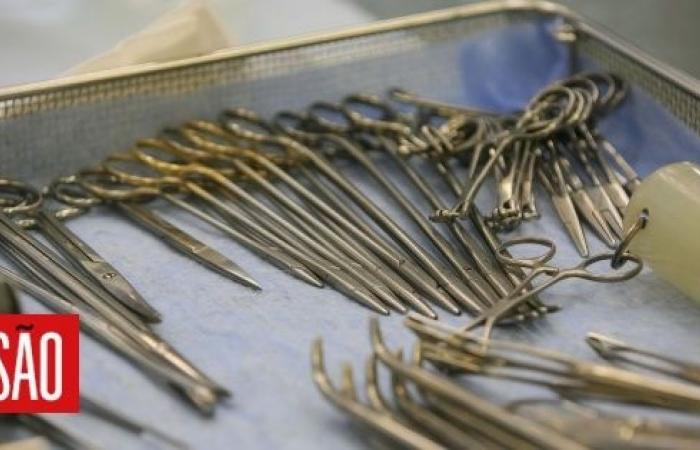
The village of Hokse, about 50 kilometers from Kathmandu, Nepal, has been known for several years as the “Valley of Kidneys”, where it is believed that at least one member of the majority of resident families has already sold this organ, in several cases for just 10 dollars, in a desperate attempt to improve their financial conditions.
A 2016 report by journalist Steve Chao for Al Jazeera stated this, adding that large organ trafficking networks were infiltrated in the region with a large persuasion business set up that took advantage of the lack of literacy, on the one hand, and desperation , on the other, of its inhabitants.
The villagers (many of them didn’t even know what a kidney was) agreed to sell this organ in the hope of obtaining better living conditions, and ended up with deep scars on their bodies: several were even unable to work, and others died. following surgery.
Years later, this dramatic situation continues, and Kanchha, a Nepali in his 40s who sold his kidney to try to save his financial situation, guarantees that “it is impossible to count how many people did it”. “Everywhere, in this village, in the other village, many people sold their kidneys”, he says, in a recent report carried out by Sky News.
Although embarrassed, the man, who is still unable to work due to the pain, decided to share his story, as he felt deceived and harmed. Sky News writes that, for around two years, the inhabitants of the region have been “desperately” trying to get rid of these trafficking groups, accusing them of exploiting the villagers and lying to them – some were assured that the his kidneys would grow back.
The extracted kidneys largely end up in hospitals in India, where organ trafficking remains a major concern. The lack of donors in this country has given rise to a large-scale black market, in which doctors and hospitals are often involved. In December last year, the National Organ and Tissue Transplant Organization (NOTTO), under the supervision of the Indian Ministry of Health, opened an investigation into the Apollo Hospital in New Delhi, after news emerged linking this establishment to a scheme illegal sale of organs from young people in Burma to the country’s richest.
“My kidney was donated to a ‘fake sister’. I think the doctor in India knew I had sold it,” says Kanchha, adding that traffickers created fake Indian identity documents in Kathmandu.
Suman, 31, tells Sky News that, a few years ago, he was going through such a delicate financial and emotional situation that he decided to travel to India and sell his kidney to a woman who pretended to be his sister – according to Indian law, donors must be related to the recipients and must present the necessary legal documents – receiving 3 thousand pounds (around 3500 euros) for the sale. “When I woke up, I was feeling a lot of pain. Now, I can’t work,” she says.
According to the WHO, around 5% of transplants worldwide are illegal, and of all organs, kidneys are the most sought after.
Kidneys at the center of new health crisis in the country
The inhabitants of Hokse guarantee that no one in the region has sold their kidneys anymore. However, some of them continue to take extreme risks in an attempt to improve their lives, writes Sky News.
Over the course of three years, Jit Bahadur Gurung, now 29, emigrated to Saudi Arabia to work “in extreme heat, around 50 degrees.” “We didn’t have time to have lunch, go to the bathroom or drink water,” he says. “It was overheating. Suddenly, I felt my feet swelling and I couldn’t walk. Then I was told my kidney had failed,” he adds.
Gurung now undergoes four-hour dialysis sessions three times a week at the National Kidney Center in Kathmandu and is desperately waiting for a donor.
Ishwor, 34, who worked for seven years in Dubai, 16 hours a day, also went through the same thing. “My body started to swell as if I had been beaten,” he says.
Like Gurung and Ishwor, several previously healthy young men (these men had to undergo medical examinations before they could travel abroad to work, hence the assumption that they would be healthy) are now returning to Nepal after years of working under conditions of extreme heat and severe dehydration, and are currently in urgent need of a kidney transplant.
Symptoms of kidney failure can often go unnoticed and by the time migrant workers return to Nepal, it is too late.
Pukar Shresth, a surgeon at the Human Organ Transplant Center in Nepal, has recently noticed a pattern: young men who left the country and worked in very hot places with little water, returned to Nepal with their kidneys in complete failure.
“About a third of all transplants are carried out on migrant workers who came from abroad,” he says, adding that this situation has been “a huge burden” on Nepali health resources.
Nepali migrant workers represent around 14% of the population and, therefore, this number becomes frightening and brings to light another major problem: the working conditions of Nepalis abroad.
Tags: village Nepal family member sold kidney story lies lack literacy despair
--




